Ipstones Plasterers: Whenever you're carrying out building work or improvements on your property in Ipstones you'll invariably have to either have some existing plaster walls repaired or fresh plaster administered to a new wall. Plastering is a really skilled occupation and although you are perhaps pretty handy around the house, it isn't something that you ought to attempt by yourself, except if you're really confident in your capabilities. This especially applies if there are ceilings that need plastering, as you will most likely get yourself and your house in a bit of a state if you choose to try this. You'd definately be wise to call in an expert plasterer to tackle this work, and while you should have no hassle tracking down a plasterer in Ipstones, finding one who's got a time slot for your job could be somewhat more tricky. Plasterers, as with many tradesmen, are likely to be in demand, so if feasible try to schedule the work at least a few weeks in advance.
Even small home renovation projects could require some plastering work to be done. It will probably be work like plaster skimming some dry lining, plastering over artex, latex screeding or installing coving or mouldings before decorating. Don't however imagine that those are the only plastering jobs that might be necessary, since there are certainly lot's more possibilities.
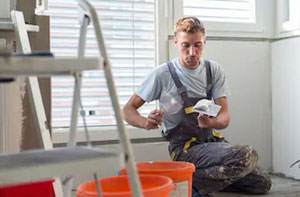
There are several means by which to figure out if potential Ipstones plasterers know their stuff, one approach is to request a portfolio of previous jobs. Getting lumbered with a useless bunch of "cowboys" messing up your plastering is the thing that you certainly want to avoid without exceptions. Serious problems can result from poor quality plastering, as you will soon realise.
It is when the painting and decorating begins that any imperfections become blindingly obvious to the naked eye. Defective areas become even more emphasized in bright daylight. It goes without saying that you ought to avoid dodgy tradespeople, and select only from decent plasterers in Ipstones.
It is always important to remember that plastering should be flat and smooth, as it's just a base on which other materials are placed. Slight blemishes and cracks may be easily filled and sanded afterwards with few issues, but uneven plastering is difficult to cover up. Areas that are unevenly plastered can bring about trouble with fitting skirting boards, any area of tiling, the installation of kitchen units and the painting and wallpapering of walls and ceilings.
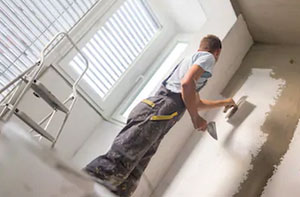
A polished finish, right from the trowel is what you can expect from the best Ipstones plasterers. Ceilings and walls that have been plastered by a specialist, should never need sanding down. If excessive sanding is occurring, the plastering was not done competently from the start. If the use of electric sanding machines is becoming commonplace, there is certainly something isn't right with your plasterer.
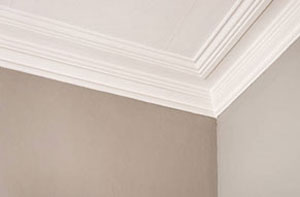
Though you may call on the services of a plasterer for many tasks, a common reason nowadays is for plastering over old artex ceilings. A large number of properties in Ipstones had ceilings which were coated with artex during the 1970's and 1980's, when it was at its height of popularity. Plastering over that old artex ceiling to make it look more fresh and contemporary is something that most plasterers in Ipstones will jump at the chance to do. Many plasterers will also be glad to apply a coat of artex if you would like to bring back that old style for your ceilings.
DIY Plastering Ipstones: When you've got plastering work that has to be done in Ipstones, you've really got two choices. You can either get in touch with a competent plasterer to do the task, or have a stab yourself. Unless you are fairly good at do-it-yourself and have got the self-confidence to take on the task, perhaps it's best left to the pros. As a newbie plasterer it is a wise idea to commence your plastering journey by practicing on a spare bedroom or an out of sight area, particularly one that's already got a poor plastered finish and that can only be improved by your early efforts. This will enable you to test out your newly acquired skills and will be less stressful than trying to do a wall surface that everybody can see. You will quite likely make a bit of a mess of it on the first attempt, but you don't have to fret because it is possible to skim a wall surface as many times as you want.

If you don't wish to go to the extreme length of taking an actual plastering course, you may be able to get some decent tips and advice by watching YouTube tutorials, although of course it isn't always as easy as they make it look in the videos. Practice makes perfect as the saying goes, and plastering is no exception to this rule - so the more you practice the more confident and capable you become. You could even develop some of your own techniques for achieving a flawless finish, but the time-tested ways are generally the best. Because plastering is mainly about confidence, the more often you do it, the more confident you will get. You can take on some more elaborate plastering projects when you've perfected this art to a decent level. You still have the option of hiring a competent Ipstones plasterer if you mess it up.
Tools for Plastering
Genuine plasterers use many tools that do not typically appear in the toolkits of other craftsmen or DIY enthusiasts, which is one of the reasons why the majority of plastering work in Ipstones is most often conducted by professional plasterers. Listed here are merely a few of the tools that a Ipstones plasterer will work with:
- Plasterer's Hawk
- Feather Edge
- Plasterboard Carrier
- Plastering Rule
- Scarifier
- Edging Trowel
- Plasterer's Trowel
- Plaster Mixing Paddle
- Plaster Buckets & Pan
- Finishing Trowel
- Dry Lining Rasp
- Jointing & Taping Knives
Decorative Plastering
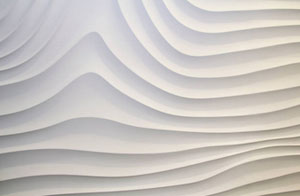
Plastering is by no means a modern technique and was being accomplished by the ancient Romans, Egyptians and Greeks in the far distant past. The ingredients used would not surprisingly have been different in those long gone days, when concoctions of mud and clay were employed. Plaster was applied to the walls of houses and shops in 13th century London to limit the spread of fires. Buildings of the Georgian and Victorian periods were extensively embellished with mouldings and features made of gypsum or plaster of Paris. Today, specialist plasterers are able to create stunning decorative effects using modern materials and age-old techniques. This may include the application of ceiling roses, dentils, brackets, niches, coving, cornice finishes and corbels.
Artexing Ipstones

Especially popular through the 1970's and 80's, artex has long been an ideal way to add a decorative finish to a plastered ceiling, and also to cover up cracks and uneven surfaces. Whilst in the good old days you would find lots of tradesmen who did nothing but apply artex and do artex repairs, nowadays it's not quite as straightforward to track down a plasterer who will take on artexing. Undoubtedly the large variety of designs was what made artex so popular, and everybody seemed to have their own favourite, be it hook & line, basket weave, stipple, swirl, scroll, circle, criss-cross, pairs, bark, broken leather or medusa. No matter what your taste was, you'd find a style of artex to match. All of these artex patterns can still be carried out today if you are able to find an artexer of plumber prepared to do it. Stay away from handyman type people who offer to "have a bash". The one snag with artex, and what probably led to its drop in popularity, is it is tricky to repair or patch.
Plasterer Ipstones
A plasterer in Ipstones is a tradesperson who spreads a smooth layer of mixed plaster over an otherwise coarse and irregular surface, so that it can be decorated with wallpaper, paint, or other finishes. Plastering has existed for hundreds of years and has been a traditional building finishing and repair process for thousands more. Nowadays, plaster is used to produce an even and smooth surface on the internal walls of domestic and commercial buildings. Plaster can also be used to form decorative mouldings that can be used to embellish ceilings and walls. Playing a crucial role in many home renovation projects in Ipstones, plastering can also be used in the the construction of extensions, loft conversions, garages and porches. (Tags: Plasterer Ipstones, Plasterers Ipstones, Plastering Ipstones).
Plastering Tasks Ipstones

Ipstones plastering specialists will likely help you with ceramic tiling, artex broken leather patterns, Marmorino plaster, re-skimming plasterwork, pitted plaster in Ipstones, relief plaster, ceiling overboarding, asbestos testing Ipstones, polished plastering, ceiling crack repairs, rendering with sand and cement, the replacement of coving, blown plaster, tyrolean rendering, polymer screeds, Venetian polish plastering, decorative mouldings Ipstones, fibrous plaster, monocouche rendering, skimming over dry lining, the rendering of brick in Ipstones, dragged plaster, flood and fire restorations, stucco plaster, float and set plastering Ipstones, recessed TV walls in Ipstones, lay in grid suspended ceilings Ipstones, patch plastering, lath and plaster ceilings, pebble dashing repairs and other plastering work in Ipstones, Staffordshire.
Ipstones Plastering Services
- Ipstones External Rendering
- Ipstones Plasterer
- Ipstones Dry Lining
- Ipstones Soundproofing
- Ipstones Artex Covering
- Ipstones Domestic Plastering
- Ipstones Polished Plaster
- Ipstones Plaster Re-Skimming
- Ipstones Float and Set
- Ipstones Partitioning
- Ipstones Plaster Patching
- Ipstones Cornice Installation
- Ipstones Plasterboarding
- Ipstones Ceiling Replacements
Other Useful Trades in Ipstones Staffordshire

Of course, whenever you're doing home repairs and improvements in Ipstones, Staffordshire, you will probably be in need of all sorts of different tradesmen and as well as plasterers in Ipstones, Staffordshire, you could also need rubbish removal in Ipstones, electric socket installation in Ipstones, bricklayers in Ipstones, dry lining in Ipstones, cornice fitters in Ipstones, tiling in Ipstones, carpenters & joiners in Ipstones, plaster mouldings in Ipstones, pebble dashers in Ipstones, cleaners in Ipstones, building contactors in Ipstones, polished plaster in Ipstones, artexing in Ipstones, painters in Ipstones, internal rendering in Ipstones, screeders in Ipstones, plasterboarders in Ipstones or external wall insulation in Ipstones.
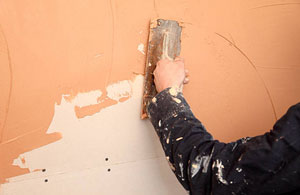 Plasterers Ipstones
Plasterers Ipstones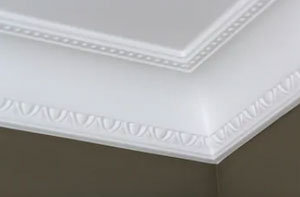 Plastering Near Me
Plastering Near Me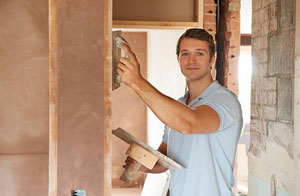 Plasterer Ipstones
Plasterer IpstonesMore Staffordshire plasterers: Rugeley Plasterers, Burslem Plasterers, Newcastle under Lyme Plasterers, Burntwood Plasterers, Wimblebury Plasterers, Wombourne Plasterers, Cheadle Plasterers, Kidsgrove Plasterers, Horninglow Plasterers, Hanley Plasterers, Tamworth Plasterers, Stone Plasterers, Heath Hayes Plasterers, Burton-on-Trent Plasterers, Stoke on Trent Plasterers, Hednesford Plasterers, Uttoxeter Plasterers, Biddulph Plasterers, Longton Plasterers, Lichfield Plasterers, Stafford Plasterers, Leek Plasterers and Cannock Plasterers.
Plasterboarding Ipstones - Plasterers Ipstones - Cheap Plasterer Ipstones - Decorative Plastering Ipstones - Rendering Ipstones - Polished Plaster Ipstones - Screeding Ipstones - Artexing Ipstones - Plasterer Ipstones





